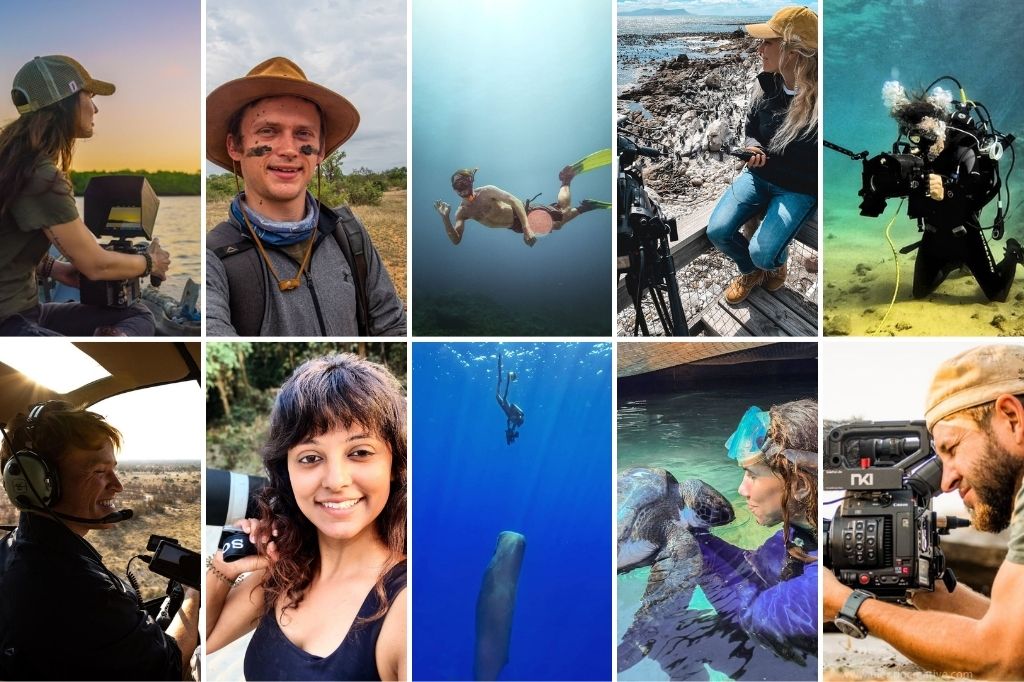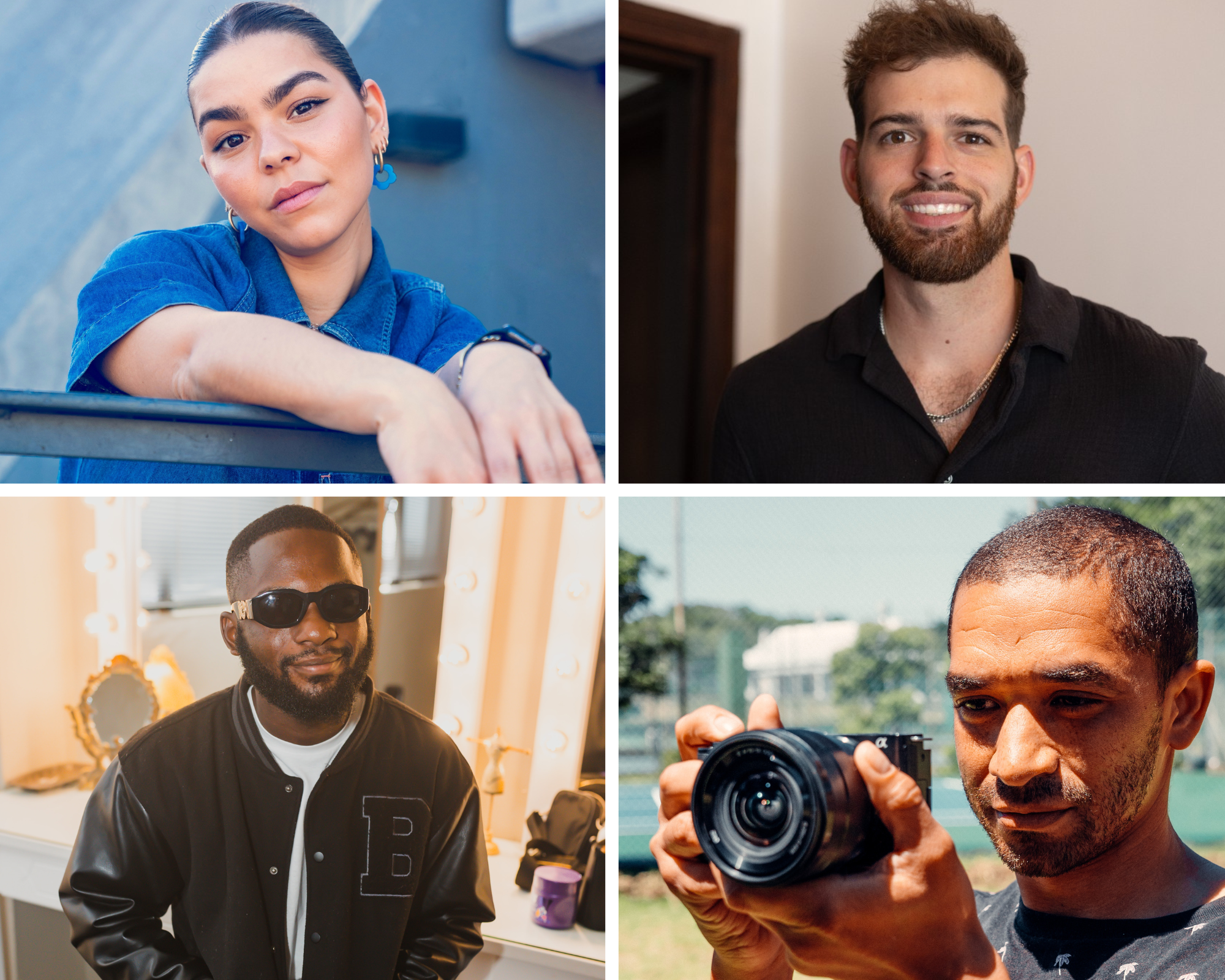South African professional photographers are attempting to change our outdated copyright law. Find out more and sign the petition if you agree.
A local group of photographers are attempting to change South Africa’s outdated copyright law to favour content creators.
The Creative Collaborative Collective are petitioning Dr. Rob Davies, Minister of the Department of Trade and Industry, to amend the Copyright Act of 1978.
Now, we’re not lawyers, but from what we understand, South Africa’s copyright law currently favours the commissioner of works instead of the creators of works. Essentially, when photographers are commissioned by a company or advertising agency to create images, the copyright of that work automatically belongs to to the commissioner.
Obviously, this is not the ideal, and the copyright of the work should belong to the creative, with usage rights licensed to the commissioners, and this is what the petition is calling for.
If you agree, and feel that the Copyright Act should be amended, please visit the petition for more information and sign it on Change.org.
Featured image created by PhilippN and shared under the Creative Commons Attribution Share-Alike license.











If more professional photographers utilised a Creative Commons license, like Catherine Scott Photography (http://cscottphoto.co.za) this would not be such an issue. Catherine uses an open (CC BY-SA) license and still maintains a very busy schedule and a thriving business.
Hi Paul, I’m a big advocate of Creative Commons licenses, but it’s not really the answer here, as photographers might not even have the right to licence their own work if the copyright never belonged to them to begin with. Obviously there are ways around this with contracts, but the case still stands that the law should be changed to favour creatives from the get go.
Well, most photographers would make use of some sort of agreement (terms and conditions) or a verbal contract of sorts, but if you look at http://creativecommons.org/licenses/by/3.0/ you will see that the rights of the photographer are highly valued and that by utilising a known (legal) license, they are quite easily able to protect themselves. CC also makes a case for non-commercial restrictions, which may apply for some togs too, although I personally think that NC is an inhibitor!
The bottom line is that once a work is licensed by the creator, then the rules change. CC ensures the rights of creators first.
This still leaves the problem of who “created” the work. The Art Directors would argue that they are the creators and we are only the button pushers.
Not at all. An AD would be the intellectual copyright holder, not the final image creator with copyright entitlement.
“An AD would be the intellectual copyright holder, not the final image creator with copyright entitlement”
How is an intellectual copyright holder different, in law, from the creator with copyright entitlement ? It’s axiomatic that an idea cannot be copyrighted, it is the physical form of an idea that get copyright protection. So, ADs with an idea are not in line for protection. They may qualify because the copyright act gives copyright to “the person responsible for the composition of a photograph” This may or may not be the AD or the photographer. But, in any case, the copyright act would give initial copyright to the commissioning party.
This is one of the main reasons I don’t even bother to do wedding photography at all. Because the way I understand it, in South Africa, the moment I take a photo of someone else, that person own the copyright to the photo taken. You take photo’s at a wedding, put your name on it, someone else takes it and destroys it through editing only to blame it on the initial photographer. It is my name that goes down the drain! Which brings into play another genre of photography, ie street photography. If I would to take a photo in a street setting of any particular person without his permission, he can sue me for privacy infringement and if I should make an income from that photo, that person could lay claim on all the benefits derived from it. Yes, I do understand that it is only right to have that persons permission (model release) and I have nothing against it at all, but it is still my work.
“Because the way I understand it, in South Africa, the moment I take a photo of someone else, that person own the copyright to the photo taken” Not true Albert. It depends on a number of different things. I think you are confusing model releases and the permissions they grant with copyright ownership which is the right to control the use of a picture.
“If I would to take a photo in a street setting of any particular person without his permission, he can sue me for privacy infringement and if I should make an income from that photo, that person could lay claim on all the benefits derived from it.” Where do you get this stuff from Albert ? This is not correct.
You can photograph anyone from a public space as there is no reasonable expectation of privacy. You pictures can be used in any non-defamatory editorial way without a model release. It’s only when the shots are used in a commercial context – endorsing products, ideas or services – that M/Rs are needed and payments must be negotiated.
The law is spot on! If I commission the work then it belongs to me. If I commission a computer programmer to write a program for me then it belongs to me. Photographers think that they are special, that they do not have to be treated like everybody else…sadly you are mistaken. I think that you lot should realize that pressing a tit on an little electronic device is nothing special, any fool can do it, any many do. You get to charge ridiculous prices for taking happy snaps, most of you have zero education yet you consider yourselves to be professionals. My dear friends, if you think that you are the rightful owners of work commissioned at great expense then you are sadly mistaken, all that is going to happen is that people will simply buy their own cameras from game, like many of you do, and take their own photographs. I WILL NOT hire anybody to do anything for me and then be held to ransom to have access to what I commissioned. We should start a petition against your petition because if you succeed then you lot sink your own industry.
VIVA my own CANON 7D!
HI Adrian, you mention software development. I was in IT for many years and there are other methods of commissioning a software program that is not outright purchase , viz., licensed for a number of users, royalties etc… In photography, consider the stock image databases – there a company can buy an image yet the image remains the property of the photographer who receives royalties on his work. I agree that if you want to compare a bespoke piece of software that is unique and purpose built, and has no use for anyone but the commissioner then the very limited option of purchasing the software outright is the solution,Very few programmers would be willing to do a complicated once off piece of work. All I am saying is – there is more than one right answer to this solution.
I also spent 20 years programming and doing database administration. The point is not how one would set up a contract, the point is that the IP should not, and does not automatically belong to the developer if there is no contract. Think about it, if I contract you to write an Android application for me, would you or would you demand to get royalties on each sale of the app. Ok, let’s say I get halfway through the development and then hire you to wrap it up and put it on the Play store, would you still demand royalties. The primary reason programmers want a hold on the code is because 99% of software is full of bugs and is not delivered totally complete. I am not saying that programmers are bad or anything, I am saying that it comes with the territory. I am yet to see any software that was delivered correctly. To get back to photographs, if I ask you to take photographs of my wedding you should not automatically have all IP rights to those photographs. It was my wedding and I paid you to perform a task, just like the caterer, the pianist and the guy who arranged the flowers. I do not pay them a royalty and I will not pay a photographer a royalty for a job that I commissioned. There was a time when photographers got to hold negatives for ransom, those days are gone. If I pay a photographer to do any work for me I want every single raw file and I want those files removed from his machine. Those files are mine and he does not get to keep copies of my property.
yes well, I think the keyword here is contract. As a photographer I have also had customers come back to me and say “Oh dear I lost my CD, or, my DVD got scratched, have you still got copies.?” I can happily say yes and I charge a nominal fee for recopying onto a new disk for them. I do not charge for the storage (perhaps I should). I will not misuse a photograph that is obviously personal or representing the commissioner’s IP, e.g., I do work occasionally for companies needing photographs of their products. Their IP is protected by contract.
I have no problem with photographers and anybody else making money, I’m more than happy to pay a fair price. I simply have an issue with automatic IP right going to a photographer if there is no contract.
agreed!
Strange then how it’s the countries that have there act together, like the UK for instance, who grant the creator of the work the copyright and right to usage fees. Me thinks SA and other developing countries simply have a tradition of exploiting the labour force for it’s own massive gains.
Adrian, You might care to read the copyright act before sounding off in this fashion. The reason for the petition is to legally have photographers (commissioned photographers, painters commissioned to do a portrait, lithographers) treated like everybody else. We don’t think we are special, we just want a level playing field where we are all treated as equals and not legally discriminated against. This discrimination runs counter to the values enshrined in our constitution and badly affects our ability to make a decent living from our profession. South Africa is only 1 of the 3 or so remaining countries in the world that has this disabling legislation. All the others have put in place the principal that the creator of a piece of original work owns the rights to control its use. By your very warped, phillistine viewpoint, any software that I buy belongs to me to exploit in any way possible. Total bunkum.
As for your other comments on the skills and professionalism of the photographers, I take issue with your blanket dismissal of our profession and have to conclude that your arrogance in reducing all photography work to its lowest common denominator admirably displays your own willful ignorance of what we do. Thank goodness you bought your own camera – at least we don’t have to deal with you.
And “I think that you lot should realize that pressing a tit on an little electronic device is nothing special, any fool can do it, any many do” Obviously, in your case, you do.
Ha ha ha, good one, you’re a funny guy, seems you think that insults make for a good argument…
…sticks n stones…I couldn’t give a rats a$$…
…no worries, I’ll press my button on my 7D and keep my IP for myself…no need to be blackmailed by a tit who presses the tit on a fully automatic camera…
If I commission you to take photographs for me then the IP is mine, just like when I commission a programmer to write my program or a architect to draw my house or a landscaper to do my garden. You are simply a service provider providing a service that I pay for.
If you want the IP then you need to come up with your own ideas and commission yourself to do your own work.
You lot think that your work is the most creative thing known to man, my dear friend, my 14 year old knows how to use the 7D, Lightroom and Photoshop. Your days of holding wedding photograph negatives so as to extort money from newlyweds are gone. Auto / semi-auto digital cameras brought good photography to the masses. Yes, of course there are photographic artists out there who get to charge huge fees because they are absolutely brilliant at what they do, but the average dumba$$ who used to run around with a camera extorting money by withholding negatives is a breed that is now deservedly dying out.
If you lot get to keep the IP rights of taking photographs of my IP then I will simply not use your services, as I said, my 14 year old can do the same….You should know that the 7D can take lots of bracketed photographs in succession…She can’t stuff it up even if she tried, auto focus, auto fire, bracketed and multi- exposure-shutter speed in succession with Lightroom and Photoshop…it doesn’t matter if 300 out of 301 photographs are crap, you just need one good one.
VIVA technology bringing quality equipment to the masses. Cameras are a lot like fighter aircraft, they perform better when there is no tit sitting in the cockpit making bad decisions passing out every time the plane makes a 15G vectored thrust turn!
It’s not that you lose the argument, you lost before you started because photography is simply one creative pursuit out of many and you argue from the assumption that I am not creative….hmmm…assumptions are the mother of all f_ups…you want to debate creativity, come, lets do it, how many products do you have in the market that a totally your own IP…we can compare notes if you like, how many different fields can you operate in…
…nee wat ou broer….like I said before, you’re a funny guy with all your insults but then there is also the old adage “A tiger doesn’t lose any sleep over the opinions of sheep”…I sleep very well…
Can I safely assume this petition also applies to someone who is commissioned illustration or graphic work too? Something that’s not just a case of ‘pressing a tit on an little electronic device’, as Adrian Hill describes photography, but created out of someone’s mind and drawn through their own hands?